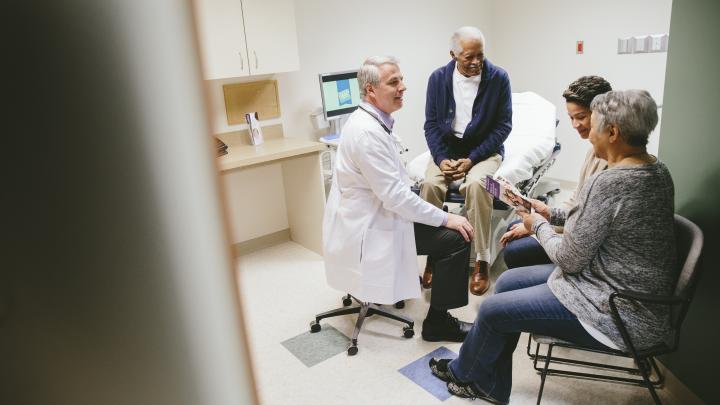
Preparing the Dementia Workforce
As we enter a new era of Alzheimer’s treatment, access to a timely and accurate diagnosis is even more critical. Today, only half of those living with Alzheimer’s disease are diagnosed, and of those, only half are told of their diagnosis. The initial diagnosis of Alzheimer’s is often made by primary care providers. But because they are not dementia specialists, most report they do not feel prepared to provide care for those diagnosed. Structured virtual training programs for primary care providers improve health outcomes while reducing geographic barriers and the cost of care through a teams-based approach. These programs have shown they can help address the knowledge gaps felt by many primary care providers and reach rural and medically underserved areas where primary care physicians are especially strained.
Accelerating Access to Dementia & Alzheimer’s Provider Training (AADAPT) Act
Through the use of virtual training programs, the bipartisan AADAPT Act (H.R. 3747) would empower primary care providers to better diagnose Alzheimer’s and other dementia and deliver high-quality, person-centered care in community-based settings. The bipartisan bill would provide grants to providers participating in structured Alzheimer’s and dementia virtual education programs to address the knowledge gaps and workforce capacity issues primary care providers face.

Take Action
Urge Congress to improve dementia workforce preparedness in communities throughout the nation.

As an AIM advocate, that’s why I do what I do, because I’ve actually seen the impact that we have doing these meetings. And I truly believe that we’re going to make the impossible possible.
—John M., Texas
Resources
The following resources will help you learn more about how AIM is working to prepare our nation’s dementia workforce.

Find a Member of Congress
Learn where your member of Congress stands on AIM’s policy priorities and how you can help gain their support in the fight to end Alzheimer’s and all other dementia.